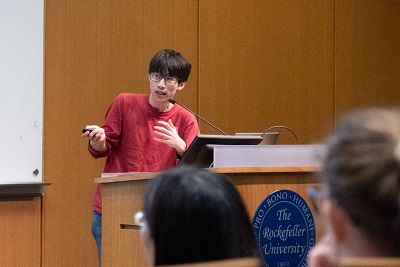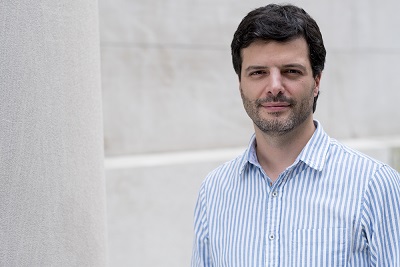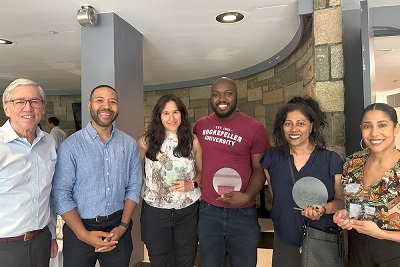$15 million gift from Helmsley Trust to fund research on digestive diseases
by ZACH VEILLEUX
A new $15 million gift — among the largest donation to the university since the closure of the Campaign for Collaborative Science last June — will help fund research into digestive disorders, including metabolic diseases, cancers and infections.
The gift is the university’s first from the Leona M. and Harry B. Helmsley Charitable Trust, a philanthropy established in 1999 by the titans of the New York real estate and hotel industries who were also generous benefactors of numerous charitable causes. The funds will establish a new center, to be known as the Center for Basic and Translational Research on Disorders of the Digestive System, which will support interdisciplinary basic research and foster collaborations among some 20 Rockefeller labs that study biological processes related to the digestive system. The center will also encourage clinically oriented studies centered in The Rockefeller University Hospital.

Dollars for digestion. A segment of small intestines from a mouse is infected with bacteria used as a model for human colitis. Colitis is one several digestive diseases under study at Rockefeller that will receive new funding from the Helmsley Trust. (Image from the Mucida Lab and the Bioimaging Resource Center.)
In addition to supporting laboratories working in the fields of immunology, microbiology, cancer biology and metabolic disease, the new center will award fellowships to students, postdoctoral researchers and physician-scientists, and will provide seed funding for early phase projects involving promising new paths to discovery. The center will also sponsor seminars, symposia and retreats, and provide support for the purchase of shared equipment.
“Diseases that affect the digestive system are among the most prevalent health problems in the world today, but little is known about the fundamental causes and basic biology of these conditions,” says Marc Tessier-Lavigne, the university’s president. “The grant from the Helmsley Trust will allow us to bring together faculty for intensive interdisciplinary collaboration that will pave the way for new treatments for a broad range of disorders.” Conditions under study in the new center will include inflammatory bowel disorders such as Crohn’s disease and colitis; obesity and metabolic disease; celiac disease; and many types of cancer, notably GISTs (gastrointestinal stromal tumors) and colorectal, liver and pancreatic cancer.
“Funding provided by this gift will advance the work of scientists doing basic research related to the digestive system as well as those faculty members who want to accelerate the translation of their discoveries from the laboratory bench to the patient’s bedside through disease-focused studies in our hospital,” says Barry S. Coller, the university’s vice president for medical affairs and the physician-in-chief of The Rockefeller University Hospital, who will serve as the center’s director. “We believe that the center will be a springboard for the development of new diagnostic tools, therapeutics and preventive measures for digestive disease.”
The Leona M. and Harry B. Helmsley Charitable Trust aspires to improve lives by supporting effective nonprofits in health and medical research, social services, education and conservation. Established in 1999, it is administered by four trustees selected by Leona Helmsley and supports a diverse range of organizations. It has committed more than $540 million in grants to charitable organizations since 2008.
“We are thrilled about this grant,” says John Codey, one of four trustees of the Helmsley Charitable Trust. “Some of the most interesting problems in science are found at the intersections of disciplines, and the best way to solve them is through collaboration. Rockefeller is the ideal environment for a concerted effort to understand the digestive system and find answers to some of the most critical health-related problems of the 21st century.”


